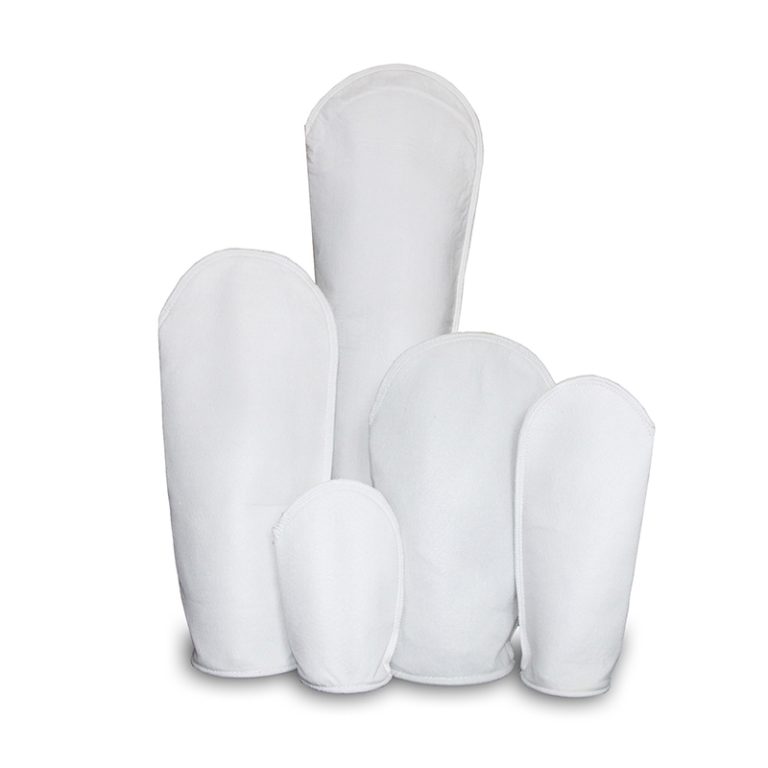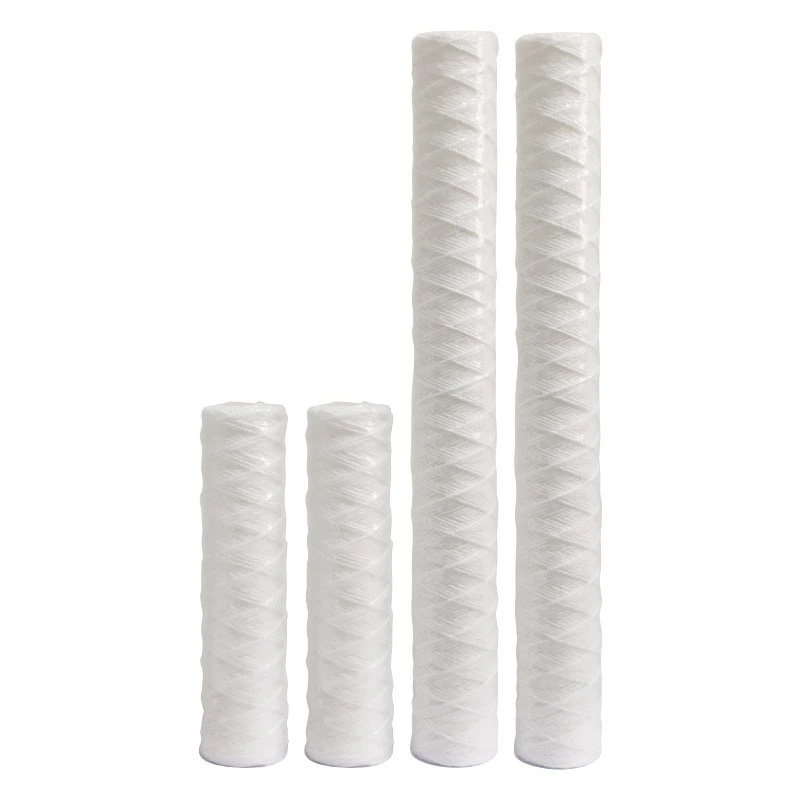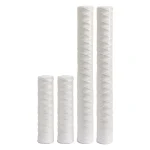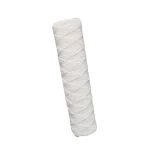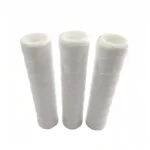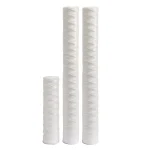BasideWT- Whole Home Water Filtration System & Replacement

5 Micron 20” Whole House String Wound Water Filter Replacement Cartridge for Well Water Filtration
PRODUCT PARAMETERS
- Product Name:</b> String Wound Cartridge
- Filtration precision:</strong> 1/5/10/20/50/100um
- Size: </strong>10'' 20'' 30'' 40''
- Diameter: 2.5''/4.5 ''
- Material: Thread/ PP
- Type: Yarn filter cartridge
- Filtration life: 3~6 Months
- Applications:Water Treatment System
- Product Benefits: Removes Impurities
- Packing: Standard Exportation Package
A string wound water filter cartridge serves as an essential, widely-used replacement filter that removes sediment and particles from water. This workhorse of many filtration systems effectively traps contaminants like sand, rust, and silt to protect your plumbing, appliances, and more advanced downstream filters.
How Does a String Wound Filter Work? Precision Winding for Superior Filtration
The cartridge features a sturdy polypropylene or stainless-steel core. Manufacturers tightly wind high-quality yarns—such as polypropylene, cotton, or glass fiber—around this core with great precision. This specific winding pattern and density directly control the filter’s ability to capture and hold dirt.
Key Features & Benefits: Why Choose a String Wound Filter?
- Graded Density Structure for Maximum Efficiency: The filter’s core efficiency lies in its graded density. A looser outer winding traps larger particles, while a progressively tighter inner winding captures finer sediments. This design uses the entire filter depth, prevents premature clogging, and extends service life.
- High Dirt-Holding Capacity for Longer Life: The dense, string-based construction creates a vast surface area. This structure allows the cartridge to retain a significant amount of contaminant before the pressure drop becomes too high, giving you longer service between changes and lowering your maintenance costs.
- Broad Chemical Compatibility for Versatility: Depending on the yarn material (e.g., polypropylene), these cartridges can filter a variety of liquids beyond water, including certain solvents, oils, and mild chemicals, making them a versatile choice for industrial applications.
Filtration Performance & Common Applications
String wound cartridges come in various micron ratings. They range from 1 to 100 microns. This range lets you select the perfect filtration level.
The commonly used string wound water filter cartridge are:
- Residential Water Filtration: They act as a perfect pre-filter for whole-house systems or under-sink units to protect plumbing and fixtures from sediment.
- Commercial & Hospitality Use: Restaurants, hotels, and offices use them to pre-filter tap water, improving water clarity and protecting equipment.
- Industrial Pre-Treatment: They serve as a cost-effective and essential pre-filter for Reverse Osmosis (RO) systems and UV purifiers, protecting this sensitive equipment from fouling and damage.
- Aquarium Filtration: They help maintain a clean and healthy environment for aquatic life by removing suspended particles from the water.
Replacement & Maintenance Tips for Optimal Performance
- Select the Correct Size: Always verify the cartridge length and diameter to ensure a perfect fit for your filter housing.
- Install It Properly: Follow the manufacturer’s instructions for installation to ensure a tight seal and prevent unfiltered water from bypassing the cartridge.
- Determine the Replacement Frequency: Your water quality, flow rate, and usage determine the replacement interval (generally 1 to 6 months). Replacing the cartridge regularly is critical to maintain water pressure, filtration efficiency, and prevent trapped contaminants from re-entering your water.
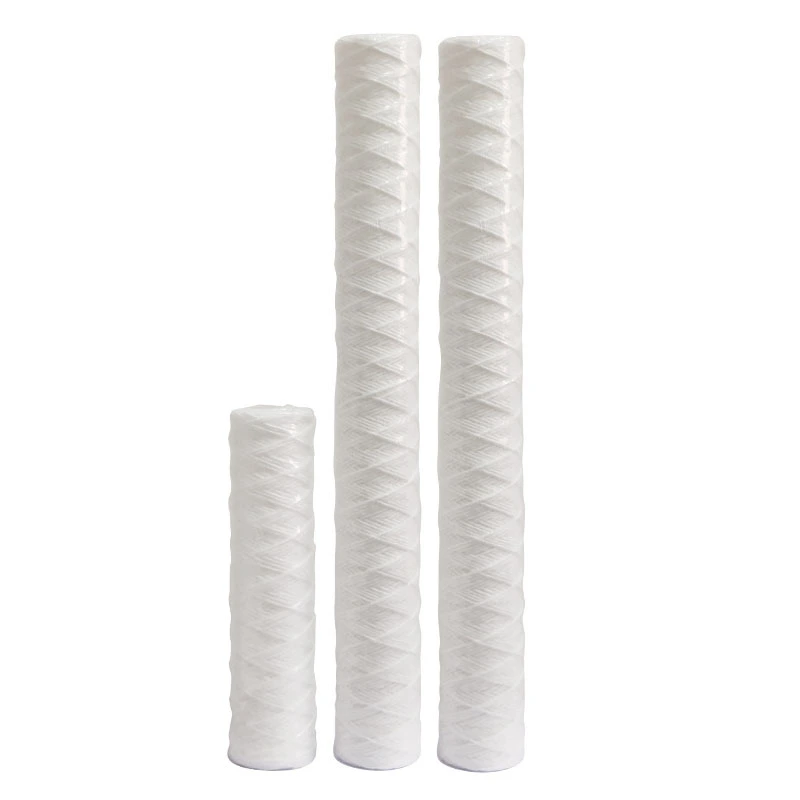
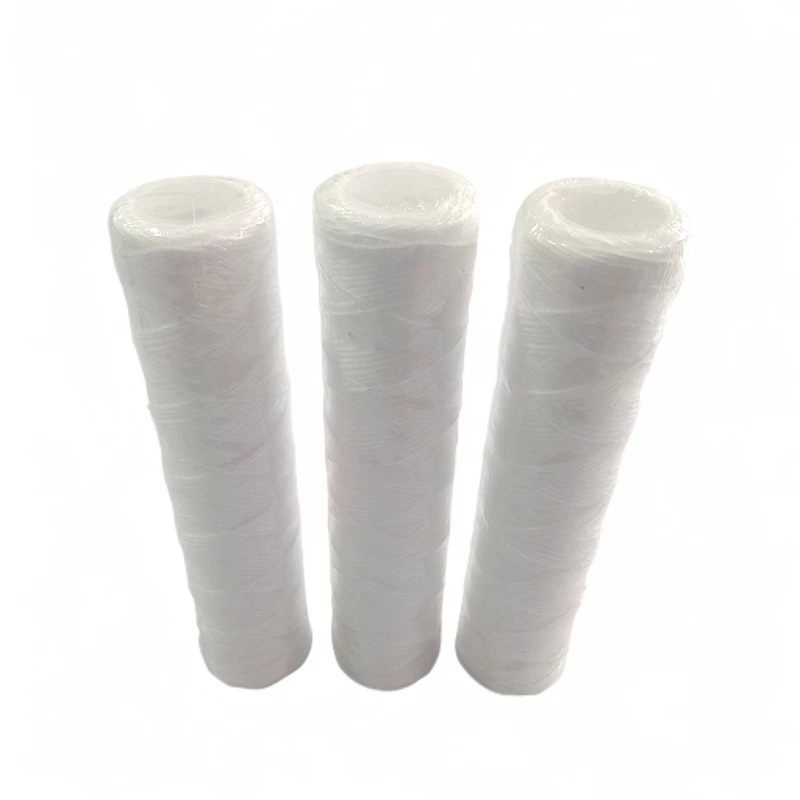
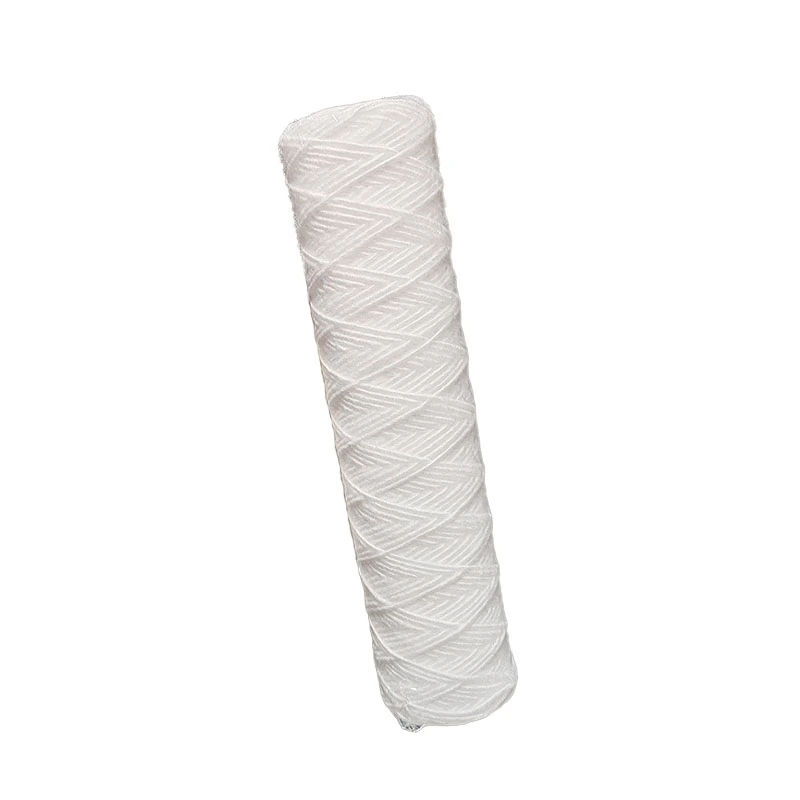
FAQs
Choosing the perfect water treatment system depends on your specific water quality, household size, and needs. We make it easy with our 3-step process:
Water quality testing – analyze your water for contaminants, hardness, and other factors.
Personalized Consultation – Our experts recommend systems based on your results, budget, and water usage.
Customized Solution – From whole-house filtration to targeted solutions (e.g., RO for drinking water, softeners for hard water), we tailor the system to your home.
To determine your water flow rate in gallons per minute (GPM), follow these simple steps:
Prepare for Testing:
- Prepare for Testing:
- Ensure all water fixtures in your home are turned off
- Select the faucet closest to your main water supply line (usually the kitchen sink or an outdoor spigot)
- Conduct the Test:
- Fully open the selected faucet
- Time how many seconds it takes to fill a 1-gallon container
- Repeat the test 2-3 times for accuracy
- Calculate Your Flow Rate:
Use this formula: Flow Rate (GPM) = 60 ÷ Fill Time (seconds)Example Calculation:- If your 1-gallon container fills in 15 seconds
- 60 ÷ 15 = 4 GPM
For more precise measurements or whole-home flow rate analysis, contact our water system specialists. We can help you determine if your current flow rate meets the requirements for any water treatment systems you’re considering.
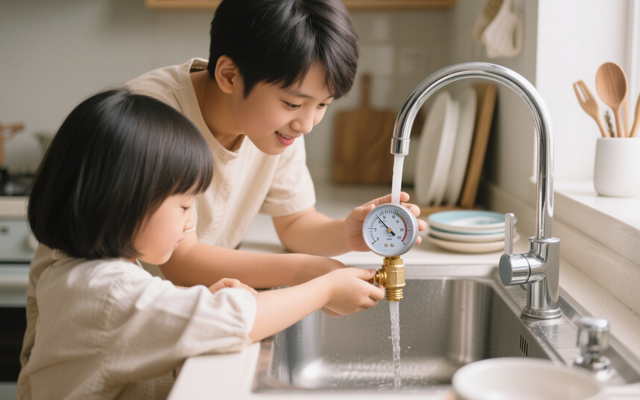
1. Check Multiple Fixtures
Test water pressure at different faucets, showers, and appliances (e.g., kitchen sink, bathroom sink, outdoor hose).
If only one fixture has low pressure, the problem is likely localized (clogged aerator, faulty valve, or pipe issue).
If all fixtures have low pressure, the issue is systemic (main supply, pressure regulator, or water heater).
2. Inspect the Aerator or Showerhead
Unscrew the faucet aerator or showerhead and check for mineral deposits, debris, or rust.
Soak it in vinegar overnight to dissolve buildup, then rinse and reattach.
3. Check the Main Shutoff Valve
Locate the main water shutoff valve (usually near the water meter or where the main line enters the house).
Ensure it’s fully open (turn clockwise to close, counterclockwise to open).
1. Activated Carbon Filters
- Removes:
✅ Chlorine & chloramines
✅ Bad tastes & odors (e.g., sulfur)
✅ Volatile Organic Compounds (VOCs)
✅ Some pesticides & herbicides
❌ Does not remove heavy metals, dissolved minerals, or microbes
2. Reverse Osmosis (RO) Systems
- Removes:
✅ Heavy metals (lead, arsenic, mercury, cadmium)
✅ Dissolved salts (fluoride, nitrates, sulfates)
✅ Microplastics & sediment
✅ Bacteria & viruses (if combined with UV)
✅ Chlorine & chemicals (with carbon pre-filter)
❌ May remove beneficial minerals (can be remineralized)
3. Water Softeners (Ion Exchange)
- Targets:
✅ Calcium & magnesium (hardness)
✅ Low levels of iron & manganese
❌ Does not remove bacteria, chlorine, or heavy metals
4. UV Purifiers
- Kills:
✅ Bacteria (E. coli, coliform)
✅ Viruses (rotavirus, hepatitis)
✅ Protozoa (Giardia, Cryptosporidium)
❌ Does not remove chemicals, metals, or sediment
5. Sediment Filters
- Removes:
✅ Sand, rust, dirt
✅ Large particles & silt
❌ Does not remove dissolved contaminants
6. Whole-House Filtration Systems
Combines multiple methods (carbon + sediment + UV) for broad protection.
- UV: Kills bacteria/viruses but doesn’t remove chemicals or particles.
- RO (Reverse Osmosis): Removes 95–99% of contaminants (heavy metals, dissolved salts) but requires electricity.
- Activated Carbon: Absorbs chlorine, odors, and organic compounds—ideal for pre-filtration.
REQUEST A QUOTE
RELATED PRODUCTS
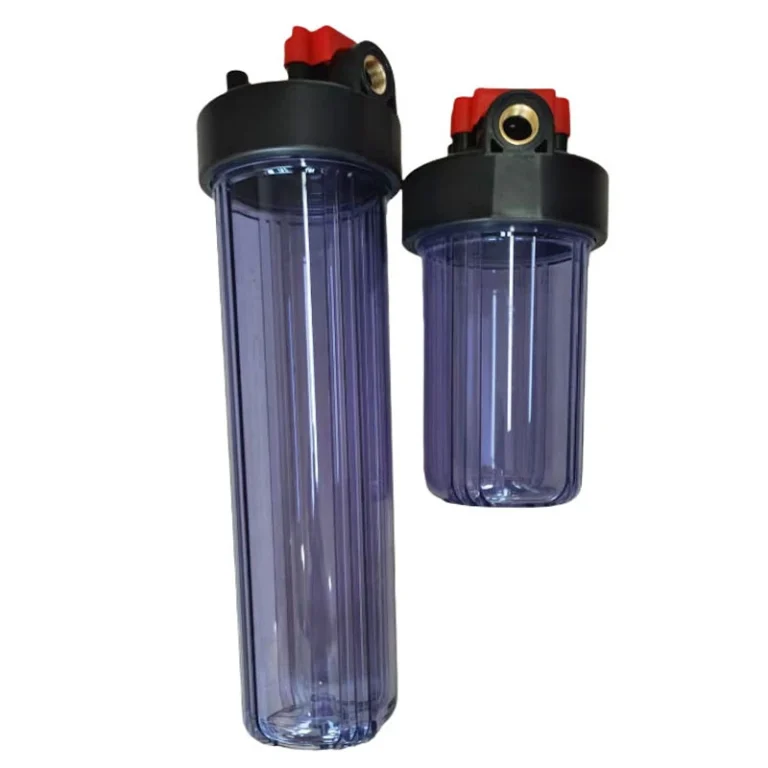
Whole House 10” 20” Purple Clear Water Filter Housing Pre-Filtration System, 1″ NPT with Pressure Gauge Wrench and Bracket
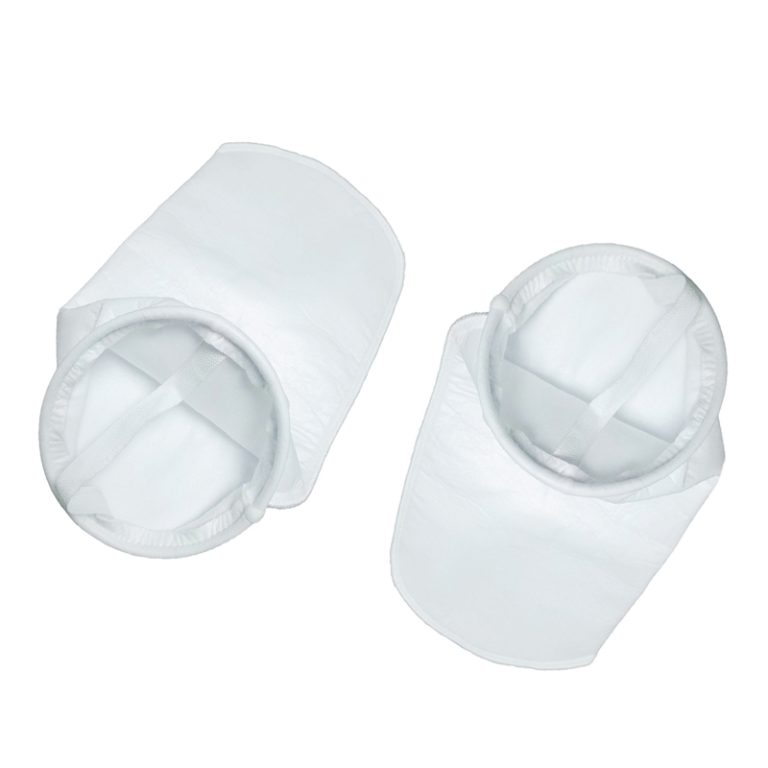
Aquarium Filter Socks – 200 Micron, 4″ x 14″ & 7″ x 17.7″ – Heavy Duty, Reef Tank & Pond Use
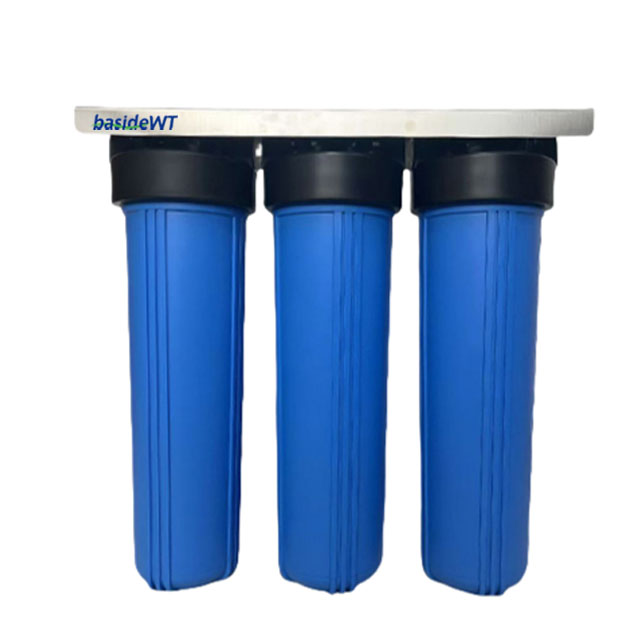
20 inch 3 stage big blue filter BasideWT | whole house well water filter system For Sediment, Chlorine & Chemical Reduction
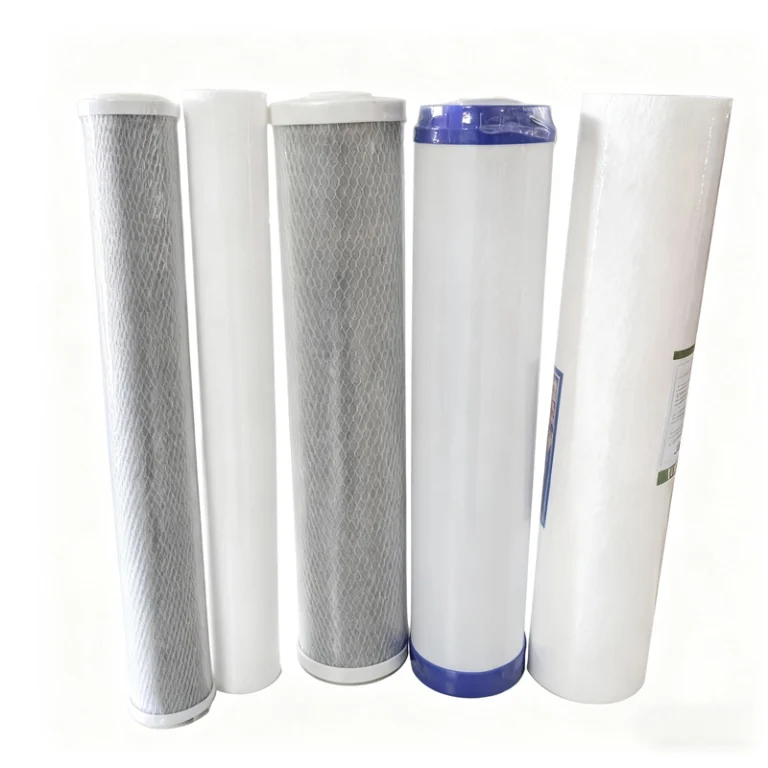
20 inch Water Filter Cartridges | BasideWT
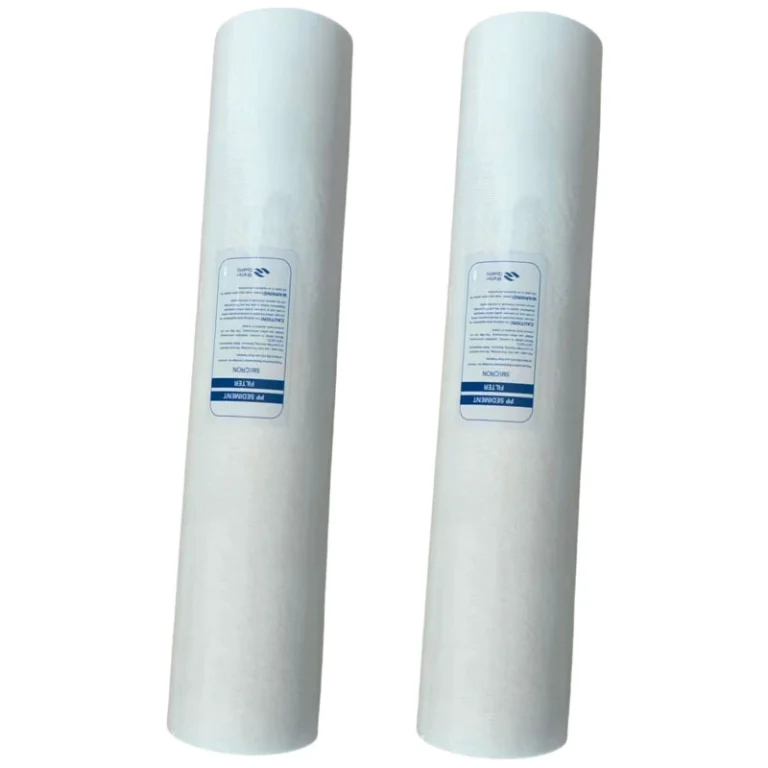
Big Blue 20 Inch PP 5 Micron Whole House Sediment Water Filter Replacement Cartridge
